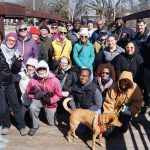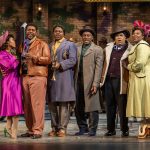helping veterans cope with life after the war
Dry [drahy] : prohibition; alcohol prohibited.
Hootch [hooch]: Military slang; temporary military housing.
Dryhootch [drahy-hooch]: Helping the veteran and their family who survived the war, survive the peace.
Veterans are a special breed. They were either drafted or chose to serve our country in one of the most dangerous, but necessary jobs — defending the freedoms and ideals of our nation.
But service to our country changes these men and women — along with their families. My cousin, Bob Curry, spent a number of years in Vietnam in the late 60s. He was part of the secret war in Laos. He saw things that were unimaginable to people not in the military and unspeakable even among his compatriots.
When he returned to America, he went to college and became a successful salesperson and technology expert. His life was good – house on the lake, new cars, beautiful wife and daughters.
Then Desert Storm began. All the images and feelings he had suppressed for years came rushing back as he watched American troops go off to another war with no defined purpose. He started to drink more socially, than privately, eventually becoming an alcoholic. He received a couple of DUIs but didn’t think he had a problem. Then he killed someone with his car.
Bob eventually left the hospital managing his PTSD and with a renewed purpose – to help as many of his fellow veterans deal with the trauma of service and life outside of the military. Two years ago, he and two friends pooled their money, borrowed a tent and coffee makers and set out to help veterans with talk, coffee and support, and in this effort, Dryhootch was born.
Dryhootch Milwaukee is an unassuming house on E. Brady Street, right next to Glorioso’s. Hundreds of volunteers, along with local firefighters, police officers and members of the plumber’s union, transformed the building into a bright, welcoming coffee and sandwich shop with meeting rooms on the second floor. A large patio out front provides a pleasant place to grab a cup and chat with friends about life or life’s problems.
Since 2008, membership has grown to 688 statewide with coffeehouses in Milwaukee, Menomonee and Waukesha and a mobile café used at veteran events throughout the area.
It’s what happens in the meeting rooms and around the café tables that makes Dryhootch unique. Bob explains that Dryhootch is for those veterans who are off the grid, who no longer trust the government, who have been frustrated by the run-around that is the Veterans Administration and for those who are tired of talking to counselors who have never been in combat.
It also serves veteran families, people who are just as wounded by the horrors of war but are not served by traditional veterans groups.
“Alcoholism has doubled over the last four years in the military. 80 percent of those with a PTSD diagnosis suffer from addiction. Four times the number of names on the Vietnam Veteran’s Memorial have committed suicide since returning from Vietnam,” Bob said.
“I see what happened and is happening and I had to give back. We are building a safe place where veterans and their families can come. We’re providing trained peer counselors to listen who have been in the same place.”
Even though some of the patrons are leery of the VA, the organization’s clinical director is the former PTSD director at the veteran’s hospital in Milwaukee and Curry works closely with veterans to navigate them through the system.
The Medical College of Wisconsin is also lending a hand, providing services and treatment programs to veterans suffering from PTSD.
Dryhootch also works with Milwaukee County DA John Chisholm and other attorneys to provide understanding and alternative sentencing for military PTSD patients.
“We want to treat them, not jail these guys,” Bob said. “We want to have counseling groups that deal with the fear, the physical reactions to war, the strain on families. We plan on expanding our counseling with other locations through Skype and expanding our online presence. Eventually we want to be open 24 hours, to be there when the real crises happen.”
Bob is also working with the traditional meeting place for veterans – the Veterans of Foreign Wars. The WWII and Korean War veterans embraced the VFW hall across the nation when they returned from service, gathering over a beer to talk and remember. Though doesn’t intend to impose his dry approach on VFWs, he says he would like to see them embrace the counseling and outreach.
But his first focus is building Dryhootch, spreading the word that veterans can get help, stay clean and survive the peace.
Dryhootch Milwaukee is located at 1030 E. Brady Street. For more information about Dryhootch or to seek help, click here. In addition to being the founder and president of Dryhootch, Bob Curry has also authored a book recounting his service in Vietnam and Laos, “Whispering Death ‘Tuag Nco Ntsoov.”




















I was hoping someone could call me 815-975-1093 or email me @ loloboys2@yahoo.com regarding Dry Hootch. I have a 27 yr old son who is a Iraq War Veteran with PTSD / TBI & severe trust issues. He has talked about starting something like your organization in the Stateline area. He feels so isolated & lost; wants somewhere that vets can go for comaradity & safety net. I was hoping maybe we could work together to get something going near us.
Thank you,
Lori Smith
[…] had the courage to fight back against veteran alcoholism — a personal fight for him. After hitting bottom with alcoholism, he rose back after a long battle with the disease and wanted […]